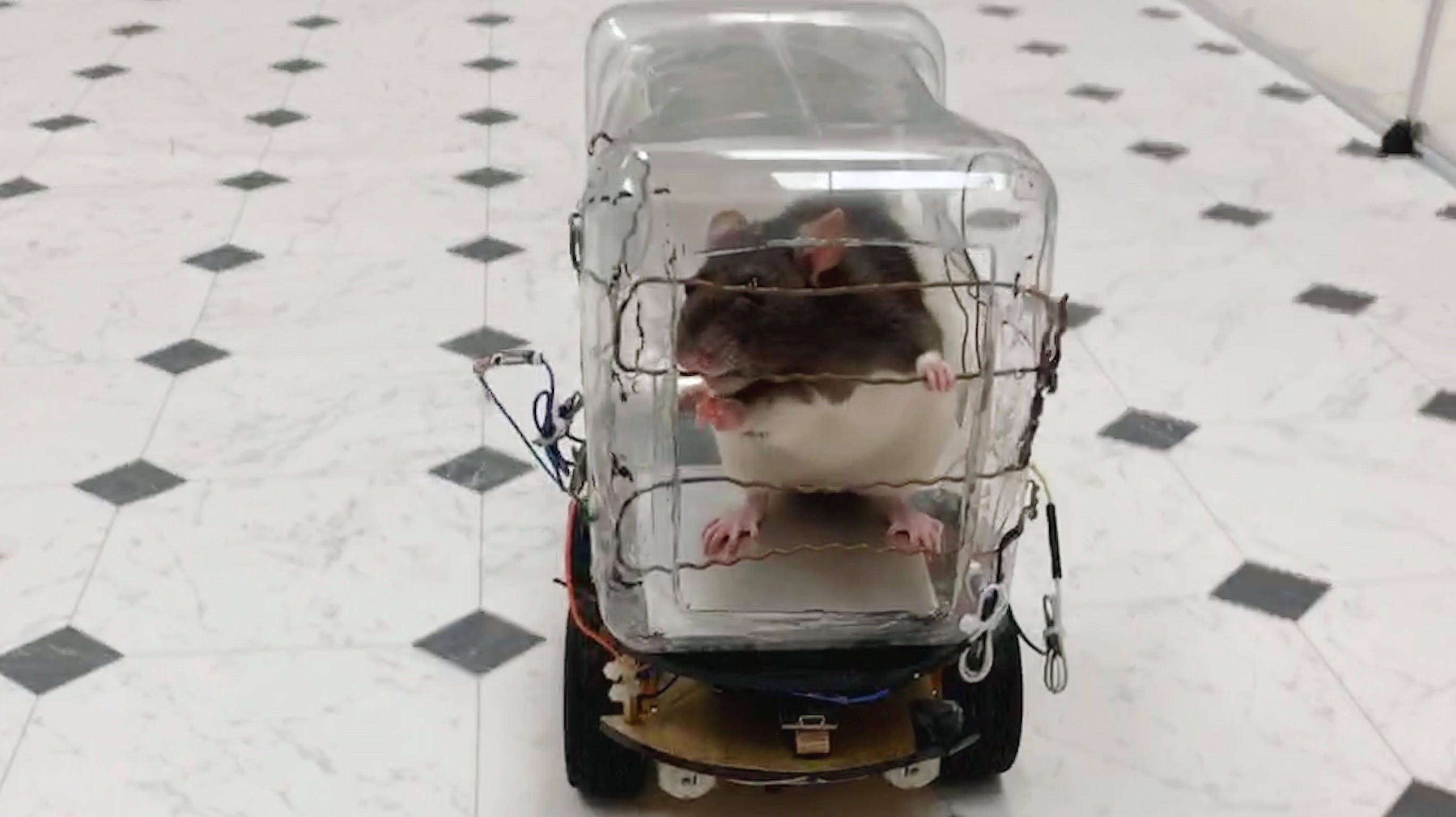Rats Will Drive Tiny Cars For Food
Rats are more like us than maybe we care to admit. They are cunning and resourceful. They will perform complicated and unpleasant tasks for food. They will put up with a lot for a decent place to live. And now they drive!
This is courtesy of a team of scientists at the University of Richmond in Virginia, who didn't necessarily want to give rats wheels, but who were curious about whether rats could learn to perform tasks more complicated than pressing bars for food or navigating mazes. Tasks like, say, learning to operate a moving vehicle.
New Scientist reports:
They constructed a tiny car out of a clear plastic food container on wheels, with an aluminium floor and three copper bars functioning as a steering wheel. When a rat stood on the aluminium floor and gripped the copper bars with their paws, they completed an electrical circuit that propelled the car forward. Touching the left, centre or right bar steered the car in different directions.
The rats drove their cars around a series of arenas up to four meters square toward targets of Froot Loops. Eventually they were able to navigate in more complicated patterns.

Strangely—at least to the scientists—the rats seemed to find driving relaxing, even more than being driven around in a remote-controlled car. This may have been because they didn't have to deal with traffic jams, and because they got a reward at the end of each trip instead of having to endure a series of pointless errands, though the scientists credit it to satisfaction from mastering a new skill. (They measure levels of rat stress, by the way, by measuring levels of hormones in rat poop. Doesn't that sound like a super-fun job?)
The scientists also found that rats who lived in a more complex environment with more things to look at and explore learned to drive much more easily than rats who lived in standard lab cages.
In the future, scientists hope that rat-driving experiments can be used to measure more specific neuropsychiatric conditions, like the effects of Parkinson's disease on motor skills and spatial awareness, or depression on motivation.
But the driving rats have already proved something, at least to Kelly Lambert, the animal behaviorist in charge of the experiment. "I do believe that rats are smarter than most people perceive them to be," she said, "and that most animals are smarter in unique ways than we think."
